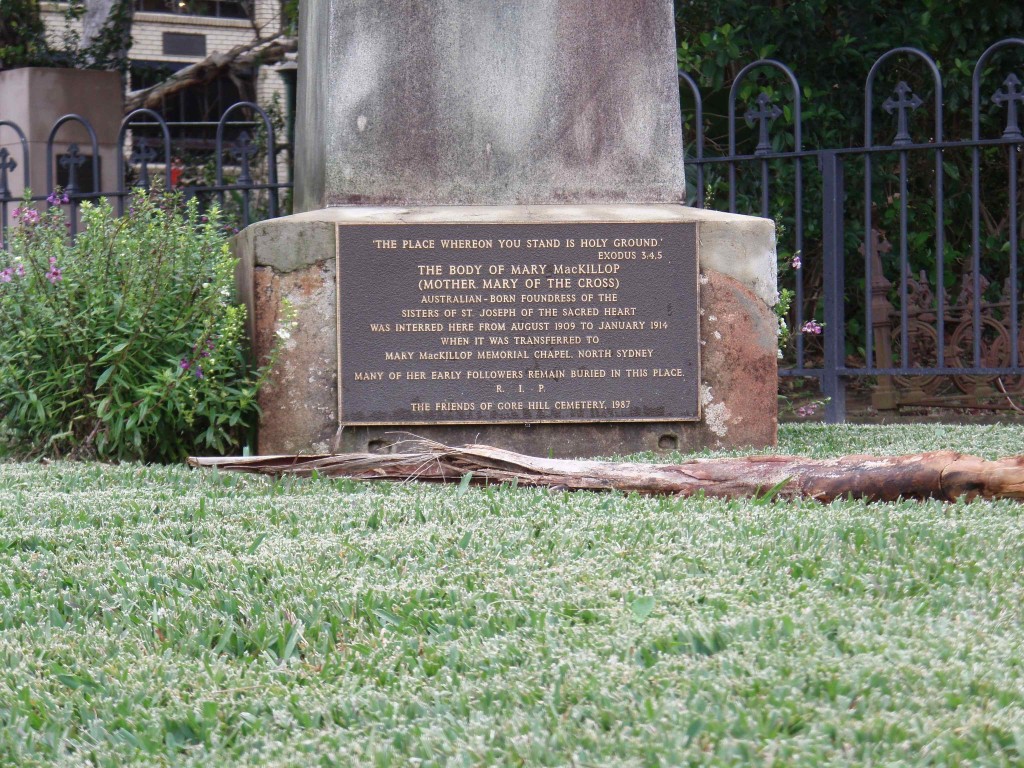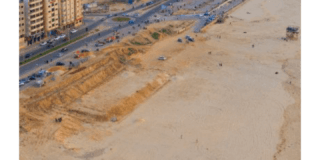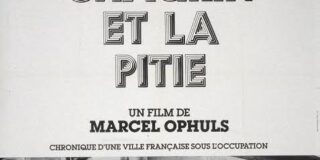“I’m really starting to understand how the Aborigines feel … this country has to stop stealing other people’s land!”
(‘Daryl Kerrigan’, The Castle)

I was having a chuckle a few nights ago watching a re-run of this Australian classic film. They say there are only seven original stories in the world and we all know a good story requires drama and conflict. The story of the Yindjibarndi people versus the big mining company FMG is a replay of the David versus Goliath tale of biblical fame and it seems that the big guys always underestimate the strength and determination of the little people. The Yindjibarndi video that went viral after the meeting in Roebourne in April is evidence of how people will rally to support an underdog. Perhaps the egalitarian Australian society I believed in as a younger woman still exists somewhere in the soul of this country.
In a post a few months ago Bakchos discussed the impending destruction of an Aboriginal site in Tasmania in the name of progress and development. Yindjibarndi stand to lose several sites if the Solomon Hub project goes ahead.
The battle being waged by the Yindjibarndi Aboriginal Corporation is not simply about money. At the heart of the mining process lies the fact that the Dreaming of these indigenous Australians will be lost forever. Simply moving a stone is, by some indigenous, considered to be disturbing the Dreaming. You may scoff, but if you accept that people have a right to their own beliefs you must acknowledge that simple premise. Mining the Pilbara strips not just the Dreaming of those still living, but disturbs that of those who have already passed.

In the Solomon Hub project, YAC CEO Michael Woodley knows that the graves of his elders – grandmothers and grandfathers – will be destroyed. In the Gore Hill Cemetery abutting the Royal North Shore Hospital is the original resting place of Australia’s first saint, Mother Mary MacKillop. Her body was exhumed and sent to Penola in 1914. The site is also the resting place of a number of her followers and was restored last year in preparation for her canonization, despite the fact that her body has been removed. To quote the memorial plaque, “This place where you stand is holy ground.” And so is much of Yindjibarndi country. Why can’t we show similar respect to our indigenous compatriots?
In determining a fair price for the destruction of graves consideration must be given to the loss of what is irreplaceable. The loss of culture and the inevitable worsening of fractures in the relationships of the Yindjibarndi, driven in no small part by FMG funding the Wirlumurra Group, including legal representation, cannot be overstated. Andrew Forrest, who has recently stood down as CEO of FMG, is neglecting the needs of the entire community, waging a divide and conquer action in his efforts to get the mining rights at the cheapest possible price; this from a man who wants to raise the living standards of the Indigenous.
6.5 “Allowing the Tenements to be granted and used by FMG in the way that FMG has described, without the agreement and consent of the Yindjibarndi Ngaarda will demonstrate once again to my countrymen that our rights, and our religious beliefs and practices, are not equal to the rights, and the religious practices and beliefs, of those who rule us, and are not worthy of their protection. It will add to the sense of despair I, and the other Yindjibarndi Ngaarda, already feel about the survival of our way of life, our culture and our traditions.”
(First affidavit of Michael Woodley sworn 25 May 2009)
In the battle to have their sacred sites acknowledged and protected, the Yindjibarndi People are reliant upon the Aboriginal Cultural Materials Committee (ACMC), which reports to the Western Australian Minister for Indigenous Affairs, a role currently held by Peter Collier. The role of the ACMC is:
“… to provide advice to the Hon. Minister for Indigneous Affairs regarding the importance and significance of Aboriginal sites. The Committee makes recommendations to the Minister as to whether consent should be granted to use land containing Aboriginal sites for particular purposes, and if so on what conditions, as required by Section 18 of the Aboriginal Heritage Act 1972.”
(Section 18 Notices to be discussed at the ACMC Meeting to be held in Perth on 4 May 2011, Department of Indigenous Affairs, WA)
Controversy overshadows the appointment of the Chairman of the ACMC, Haydn Lowe, a role he attained despite failing to be recommended by the Registrar of Aboriginal Sites. This appointment, made by Peter Collier, adds to concerns about transparency in the management of issues between FMG and the Yindjibarndi People, given Mr Collier’s openly stated close friendship with Andrew Forrest from whom he apparently “takes great guidance”. It is the contention of the YAC that the Minister should divorce himself of the decision making process related to issues in which FMG is involved due to this association and allow an impartial independent person to be appointed in his stead. (Press Release, 8 June 2011)
The proposed mine sites on the two tenements on which the NNTTA and the ACMC have met will destroy great swathes of land in a project that is projected to last twenty years … makes me wonder why FMG want the indigenous people to sign a contract that is open ended.
“The Mineralisation Reports identify targets of approximately 400 million tonnes for each of the proposed leases located in drainage valleys on Brockman Iron Formation rocks in the Hammersley Range which vary in thickness from a few metres up to 60 metres or more in a few cases … The project will employ open pit mining methods using mining strips at a minimum width of 100 metres, with a staged pit design and pit walls up to 60 metres … Mapping attached to the Mining Statements show the proposed mining operations are likely to create significant ground disturbance to the majority of the area of the proposed leases.”
(Bennelongia Environmental Consultants, Troglofauna Assessment for the Solomon Project: Firetail Deposits. Final Report, Report 2010/85, September 2010.)
Further impacting on the progress to an agreement between all parties is a feeling of being ignored, that the rights, religion and culture of the Yindjibarndi come second to mining profits. The Yindjibarndi do not feel that they are being respected.
7.2 “There are many positive developments that I, and the other Yindjibarndi Ngaarda, wish to bring to our people: better health, better education and better lifestyles, but they aren’t going to happen through handouts from Manjangu, like FMG. What was offered to us during the so called good faith negotiations with FMG was not a right to negotiate but a right to accept whatever offer was made by FMG. That offer was a pittance compared with the profits FMG stands to make from using our country. FMG, like other mining companies, appears to believe that I, and the other Yindjibarndi Ngaarda, should be grateful: for a small hand out, which allows no real development of our social, cultural and economic structures; and, for a promise that FMG will train our people so they can be employed in FMG’s mines on our country. As far as we are concerned, this is just another form of assimilation. The Yindjibarndi People do wish for greater development of our social, cultural and economic structures than we have seen in the past forty years but such development must be of the kind that works for us rather than for mining companies like FMG.”
(First affidavit of Michael Woodley sworn 25 May 2009)
Assimiliation. A more emotive adjective could not be laid at the feet of Andrew Forrest, founder of Generation One. The uncompromising offer (not negotiations, according to the YAC) has been peddled to split the Yindjibarndi people. It’s not unlike what happened to the Irish Catholics during the Potato Famine, in which food would be provided by the Quakers in return for conversion to Protestantism. In agreeing to allow FMG access to their land, the Yindjibarndi will be selling their souls and the financial support being paid to the Wirlumurra is encouraging them to act as ‘soup-takers’. Proselytism is alive and well in the contemporary world. FMG should take note of the bitter resentment that persists 160 years after the Famine among Irish Catholics to this day.
Between the low compensation on offer, the disruptive meeting last March and the questionable impartiality of the relevant authorities on whom both miners and the native title holders must rely for guidance, it appears that the legal process is taking a less than unbiased approach.




Andrew Forrest & his Freemason affiliates, who’ main goal is to get the skeletons from grave areas/Ceremony, with the added bonous of massive profits, that aid Shareholders & Government/Royalties, that are spent on Infrastructure Project, that too deliver massive Profits. I know because I live in the State & have known Yindjibarndi since my introduction to the Pilbara over 30yrs ago. Check my Tweets on Twitter. mjjregan I certainly am on my Sister-in-laws but my hands are tied, for I have to Respect Law & Culture. This eats my insides apart. I can’t do what Freemasons can. Yindjibarndi know me too well. Bunjima is my mob where my main affiliation lies.
Pingback: Michael woodley | Ballocapesso